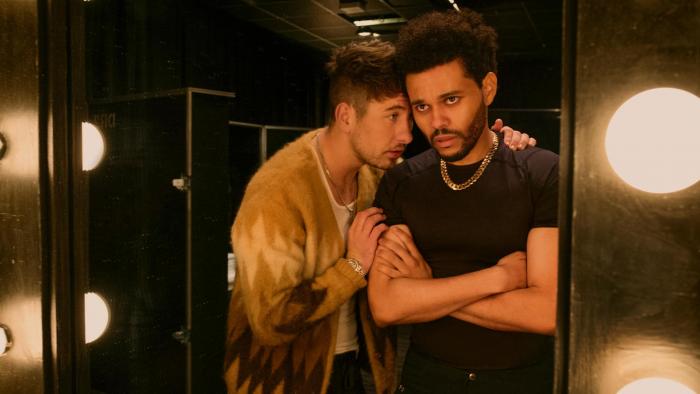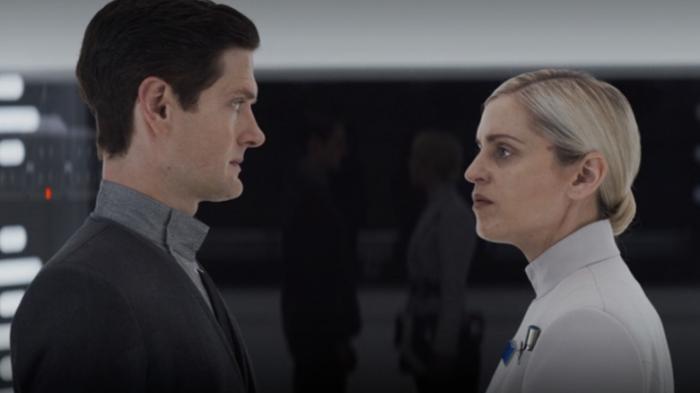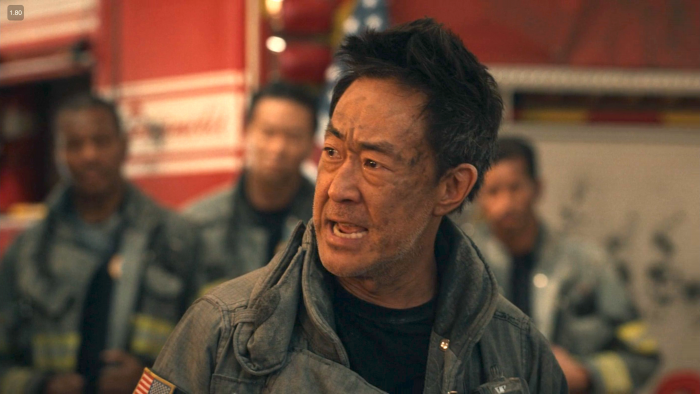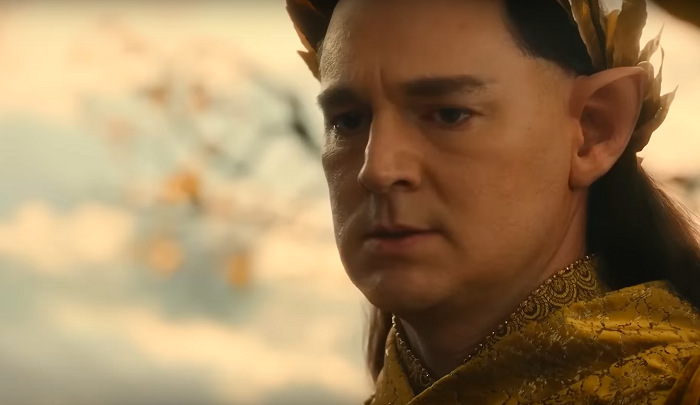
The Weeknd's 'Hurry Up Tomorrow' Is a Cinematic Personality Crisis
By Jason Adams | Film | May 17, 2025

The pop stars are not okay. We’ve been inundated over the past few years with movies about how the weight of the world is crushing the shoulders of our slim chanteuserie, from Lady Gaga in A Star is Born to Naomi Scott in Smile 2 to M. Night Shyamalan’s daughter falling into Josh Hartnett’s Trap. Who could have predicted that Brady Corbet’s Vox Lox was going to end up being so secretly influential? So ahead of its moment?
Well, now comes Abel Tesfaye’s turn. Best known by his nom de plume The Weeknd, the real life pop sensation behind hits like “Blinding Lights” has turned to writer-director Trey Edward Shults (the extremely talented force behind Krisha, It Comes at Night and Waves) to stage a cinematic personality crisis set to a sizzling and relentless beat … like really, really relentless. Meaning “relentless” to the point where I started trying to count the seconds when the soundtrack wasn’t sonically assaulting me, and they were few and desperately far between.
But that’s just the beginning of Wake Up Tomorrow’s issues, which are myriad and often really rather embarrassing for everybody involved. (Forget Purple Rain; this is some Under the Cherry Moon style out-of-control shenanigans.) There have been more brazen paeans to ego put onto movie screens before—we must after all, like fascism, never forget that Sylvester Stallone’s Staying Alive exists, lest it happen again. At least Tesfaye had the good sense to surround himself with extremely talented people—besides Shults behind the camera, Tesfaye’s co-stars are no less than Barry Keoghan, Jenna Ortega, and Riley Keough. We love them!
You can start to sense the rub, though, when you realize that those are (save a scattered line or two) basically it, as far as co-stars go. And those three who are not named “Abel Tesfaye” are real come-n-go, “now you see ‘em, now it’s just Abel Tesfaye again” types. And for Aretha’s sake, one of those three (Keough) is literally only seen in still photos or heard in voiceover? How do you even hire an actor as electric and magnetic as Riley Keough and never actually put her on the screen? It turns out the answer is, “When you need to spend 75% of your film holding an extreme close-up on your leading man’s face as he apparently … goes through something.” Apparently. Or so I’ve been told.
Because to Tesfaye’s misfortune, it turns out that hiring actors as ace as Keoghan and Ortega to play opposite him, even at this brevity’s allotment, really does his limited acting prowess very little favor. By the end of Hurry Up Tomorrow—which details a couple of days in The Weeknd’s tour (yes Tesfaye is playing a supposedly semi-fictionalized version of himself) as he breaks down post-breakup with Keough’s invisible character—the sum total of character arc we’ve achieved could’ve taken us five minutes to get to. It’s just a rebirth parable that puts the most strained of labors to shame. Somebody shoulda c-sectioned this shit and saved us all the trouble.
The problem is Hurry Up Tomorrow (and they really stepped in it with that title) is simply a music video stretched out to an unjustifiably interminable length. Its emotional insights are puddle deep profound—the “male feminist loudly and suspiciously declares himself a male feminist” version of cinematic self-mythologizing. I don’t think this movie is saying about you what you seem to think it is, Abel.
Still damn do Shults (and his cinematographer Chayse Irvin) make the lights on that shallow puddle shine. It is a truly gorgeous film—at its best, it spirals off into experimental oceans of abstractions and sound that are lovely to be lost in. At least when Shults isn’t being forced to cut back to Tesfaye’s blandly pained face, offering nothing but “Woe (or is that whoa) is me.” The furrowed theatrics, I tell ya! They’ll murder us all.
Very clearly wanting (and failing) to be a Fatal Attraction for the Euphoria Generation, there is a slim assemblage of plot here that’s wandering about in between all of this sensitive celebrity soul agonizing. Jenna Ortega plays one of The Weeknd’s fans—one apparently named ‘Anima’ (aka the female side of man by way of Jung) according to the credits, which ughhh just please make it stop—whose teary eyes The Weeknd catches mid-concert. The two bond, they bed, but when the time comes the bitch (and hey that’s The Weeknd talking) won’t bounce.
This does give Ortega some fun stuff to play for about ten minutes of this film’s almost two-hour runtime. Slinking off the deep end with a smile, it’s incredibly funny to see a pop singer tied up and forced to listen to his most mentally unwell fan dictate to him what hidden depths his shitty lyrics contain. It’s as if Annie Wilkes had landed Liberace instead. I haven’t laughed so hard at this sort of schtick since Taylor Swift got shoved under a moving car in David O. Russell’s Amsterdam.
Still the joke seems to be, “Shit ain’t that deep, sis.” Which really feels like more of a joke on The Weeknd himself than it does any misinterpretation made by Anima (and for the record, yes, I truly madly and deeply resent having to type out that name again). And to put it bluntly I’m not sure Tesfaye, for all his talk in the press about how this movie (and its tie-in album, available wherever you buy albums!) represents him burning down the past and phoenixing himself out of his self-made ash-heap, gets that this is a joke. And that the joke is on him. Because, no—the shit’s not that deep, sis. But then he seems way too busy taking his shit way too seriously to notice anything out there beyond his own burning beak. Jennifer Hudson didn’t die and go to Kitty Cat Heaven for this nonsense!



